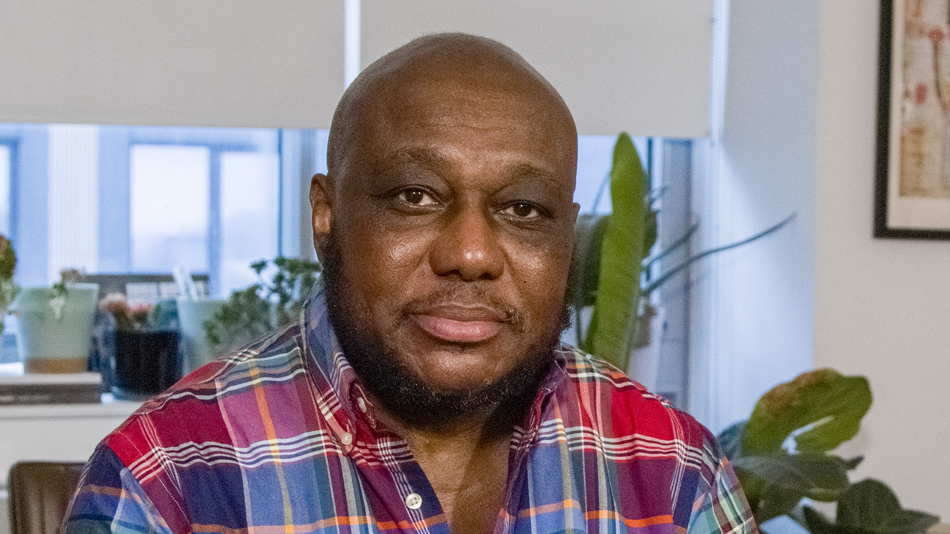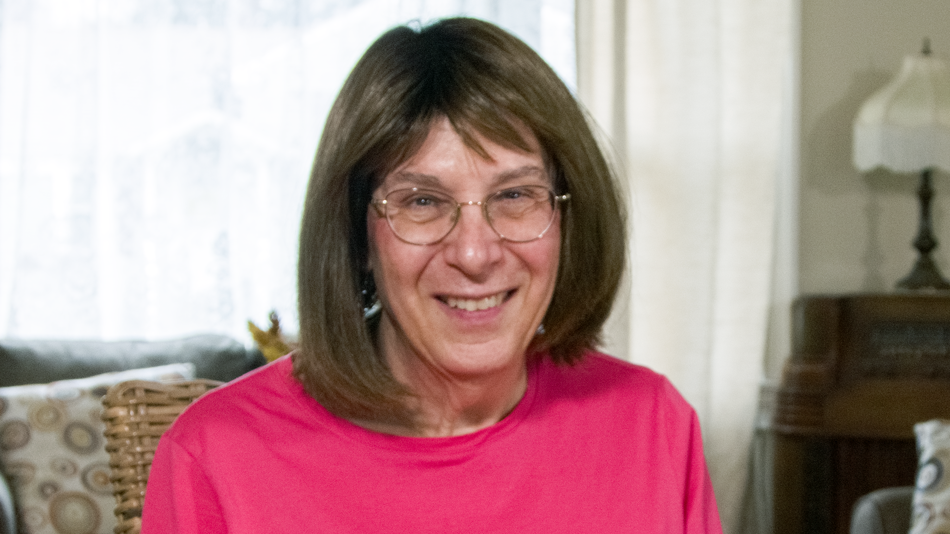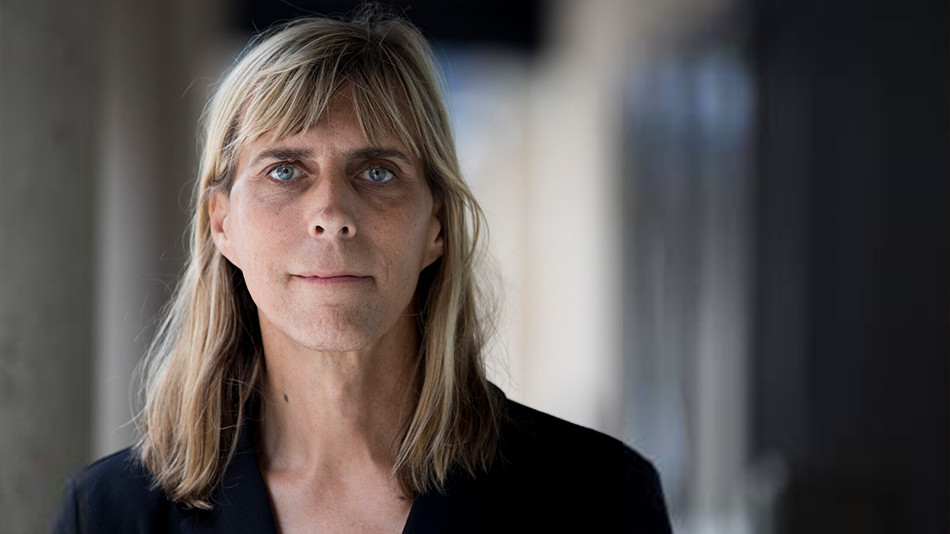Nathan: Welcome to this week’s Story Update. Today, we’re going to speak with Justin Adkins, who we actually filmed almost to the day 11 years ago. But before we speak to Justin, let’s take a look at his story.
Justin: I’m Justin Adkins and from Poway, California, which is a suburb of San Diego.
In high school, I wasn’t out and I went to college a lot later. And so in college I was out, I was out as a trans person, but I hadn’t started my full transition yet. Being in that college experience really taught me a lot about who I was, and since I was an older student, I had a lot of people looking up to me and looking to me for how did I navigate the world? And I navigated the world by being a really nice guy. And part of that being a nice guy is letting people ask questions.
Recently, my parents came up and visited me and basically I see my mom about every six to seven months, but this was the first time my dad had come out this direction to see me. So in fact, I don’t even think he’d ever been back east, so that was kind of weird for him. He had this, like, culture shock to begin with, but it was… it was good for him to see me in my environment and to see also the other people accept me, that other people around me – I’ve got friends, I’ve got a great job where my coworkers respect and appreciate me. And yeah, we got along better than we almost ever have.
Part of that is because I gave them time to kind of transition with me, that they could ask questions, that I wasn’t going to yell at them for calling me by my old name. I wasn’t going to get mad at them for referring to me as “she”, and that I was kind of being aware of their process as well.
And I think that helped a lot. It helped them and it actually helped me as well because, for me, them coming into their own about who I was was a lot more important than me forcing who I was on them.
Nathan: All right, welcome Justin. How’s it going?
Justin: It’s going well. How are you doing?
Nathan: Doing pretty well also. Where are you these days? What’s what’s going on? Where are you? Are you in California? We filmed you in New York, but where are you today?
Justin: So when we filmed 11 years ago, I was living in Massachusetts and we filmed in New York because I was there visiting. And now I live in Meadville, Pennsylvania, which is like halfway between Pittsburgh and Erie. So it’s another small rural town, like I’d been in out in Massachusetts.
Nathan: Nice, I guess you like the small towns, huh?
Justin: I do. I really do.
Nathan: Nice. So one thing that really stood out in your story that I just loved the whole… the whole way through your story was your relationship with your parents. It seemed very open and very honest. And can you… what’s your… can you talk about your relationship with your parents today?
Justin: So when we first talked, I had – I was trying to figure it out. I’d been out as trans for probably a year and a half to two years at that point. And it was really a pivotal… pivotal point in my relationship with my parents. At first, they weren’t very supportive. And they, at that moment when we spoke, they were becoming more supportive.
Now, I’m still not sold that they agree with my life choices to transition, but they’re very supportive now. We have a great relationship. We talk on a regular basis. And still, you know, because we live across the country from each other, they’re still in California, we still see each other about every six months or so – trade off me going there one time and then coming here another time.
So it’s… it’s become a much more holistic – I think, would be a good word – relationship then it even was 11 years ago.
Nathan: That’s great. I’m happy to hear that. It sounds like it’s still evolving and growing and moving forward. There’s something else that, from your story, that seemed consistent with you as a person, which is you were very okay with people asking you questions and, you know, having this open dialogue, whether it was your classmates at college or your parents.
And there’re some times, I feel like – you know, I can always speak as a gay man, but you know, whether it’s about gender or sexuality or race, that some people are like, “I don’t want to be a teacher right now. I just want to live my life.”
How do you… it seems like you have very well-navigated that… that back and forth and that balance. Can you kind of just talk to that a little bit?
Justin: Yeah. So I’m an educator. And you know, when we first spoke, I had just started working at a small college in Massachusetts. I now work at a small college here in Pennsylvania, and I’m actually about ready to start working at another small college out in Ohio. I’ll start there in a few weeks actually.
And so… but I’m an educator and that’s really important to me and I made a decision fairly early on in my transition that I’d be very open about who I am. But I also often tell people a story, because I tell a lot of stories and I tell people this one story because I don’t want them looking to other trans people as educators all the time, like I’m open to being. And so what you were saying is really, I think important for folks to realize.
And the short story is that. I was walking my dog one day and a woman who I used to walk with around this field with our dogs, it was 8:00 AM, I had my coffee, I hadn’t even finished my first cup of coffee. And she started asking me about what surgeries I’ve had.
And I looked at her and I was like… I was like, “It’s 8:00 AM. Come to one of my workshops. Email me and say you want to sit down and have a cup of coffee, but 8:00 AM on the field with our dogs is not the time to be asking me.” So is open as I am to being- I’m very out, I’m very open about who I am and about most of my life. And as much as that’s the case, there also still are some limits to that. And I try to, in my openness, I try to educate people as well about how to be respectful about their questions and ask at respectful times.
Nathan: I love that. That’s such a perfect example of, you know, a time and place for everything.
What would you say to people who are, you know, kind of in that situation where they’re being asked a lot about any issue… that they’re just, you know, one of their identities and, and they don’t want to always be teaching. How could you… you know, should they be patient or should they just be like, Yeah, you don’t have to be a teacher. What’s your input or advice on that?
Justin: I think the big thing for all of us who have marginalized identities is that we have to set limits and we have to be clear and firm about them. And, you know, as much as an educator as I am, I continuously am setting limits as well. And you know, I live my life out loud mostly for young people. I’m 42 now and I started medically transitioning at a time that – there’s a whole group of us who kind of started medically transitioning 10 to 15 years ago. We’re now the old people. And I’m really aware of that. I, you know, I’m aware that when I go to the doctor and they say, “Oh, you transitioned a long time ago.”
I’m like, It doesn’t feel that long ago. But you know, we have to set limits as well to protect ourselves. If we don’t take care of ourselves, then we’re not any use to anybody else. If I don’t set limits for myself, then that takes away from the impact when I do answer questions. And I have to – we have to think about self-care, all of us from marginalized identities.I think that’s really a prominent thing right now for people of color, especially for black people, where white folks are asking them questions all the time right now. And that’s inappropriate. We also need to self re- everybody needs to self-resource. Google has the answers on it about trans people that it didn’t have 10 years ago. So I tell people a lot nowadays to Google something and then come back and ask me a more appropriate question. So you have to do things like that.
Nathan: Put in the work yourself, and then if you need more assistance, then seek out someone who might be able to help you.
Justin: Right. One hundred percent.
Nathan: Okay. That’s great and very helpful.
So what else is going on in your life? It’s like we talked about, it’s been 11 years. Here you’re involved in more education now. Anything else going on in Justin’s life that you want to share?
Justin: So I think a lot has shifted. When we talked 11 years ago, I had just gotten divorced. I was single for quite a long time, moved to a small town, and everybody told me as a bisexual transsexual, nobody’s – you’re not going to find somebody in that small town.
And I laughed and I was like – but I wound up being with somebody who wants to live in a small town. And I moved here to Meadville and I found the love of my life. And I now have stepkids, which is really exciting. They’re both in college, which is really great for me because I work with college students. So I’m really good with college aged kids. So it’s really – life is really good. And I just – I’m actually in a much better place than I – eleven years ago, I was in a good space, but I’m in the, even much better space now. Growing up has been a good thing.
Nathan: That’s amazing. Congratulations on all of that. And it sounds like it’s been a very good 11 years for you. Is there… is there anything else that you wanted to share with anyone?
Justin: I think, you know, especially for younger folks who are watching this, but also for older people, you know, who are like me in their forties or older, you know, for trans folks, a lot of times we have questions about when to transition and the thing is, is, you know, do it. Take care of yourself because there’s always going to be a reason and hesitancy to not transition, especially medically transitioning if that’s what you’re interested in.
And take care of yourself. And I think living right now in a pandemic, it has become even clearer to me that that’s important. And as we make the life choices and put ourselves first and not in a narcissistic way, but put ourselves first, it is… we end up being better for ourselves and for everyone we’re around. So I think that’s really important.
Nathan: That’s beautiful. Thank you so much for sharing that. And thanks for taking the time out of your day. I know you’ve been busy, so thanks again. And Justin, we’ll ask that if people leave comments in the comments on the YouTube video, maybe you could check back periodically and answer some of them, if you’re… if you’re willing to do that.
And if anyone else is watching who wants to see more stories from I’m From Driftwood, they’re all on our website. And we also upload them directly to Facebook and Instagram. So you can watch a lot more stories that way too. So thanks for watching this week’s and we’ll be back next week with a new Story Update.








Share